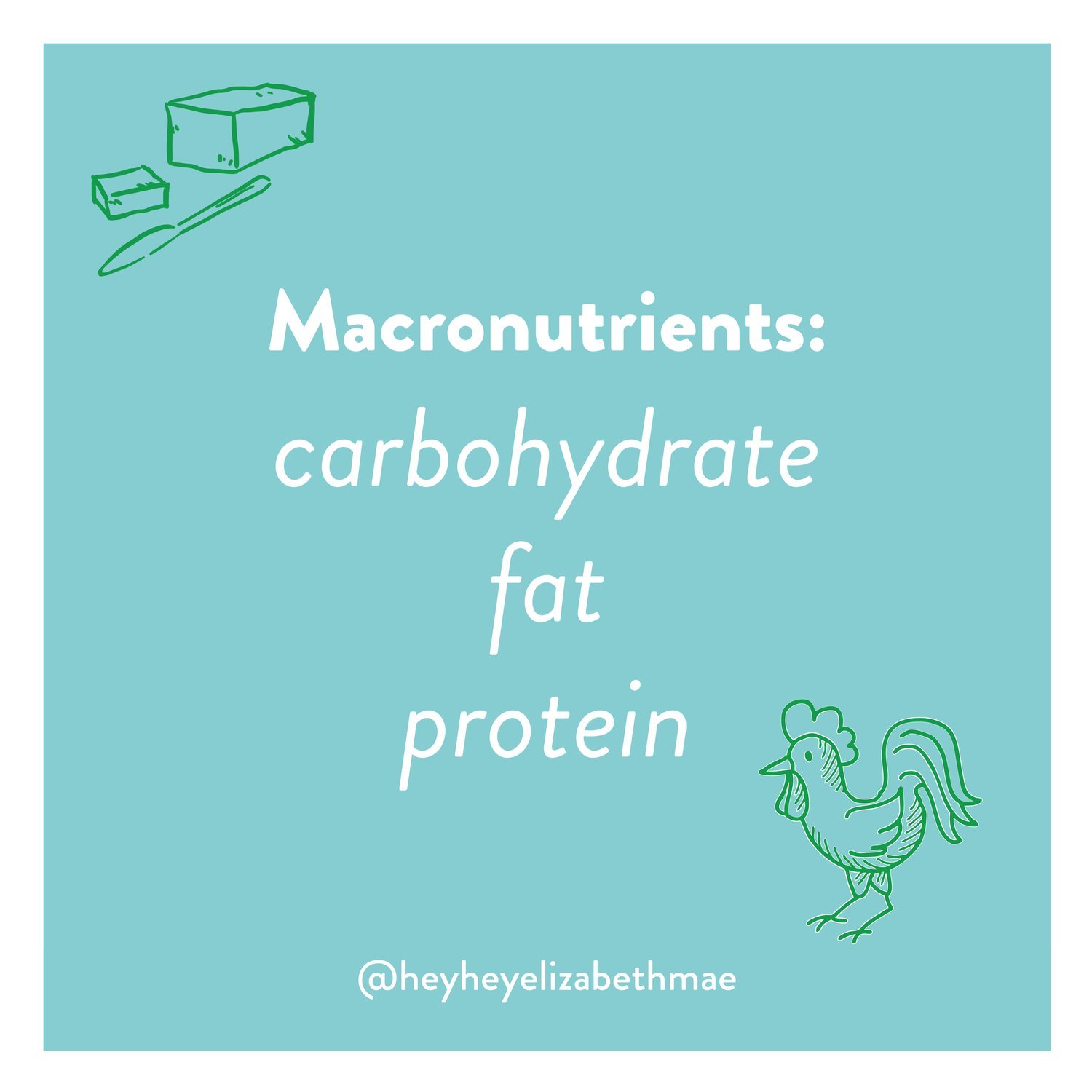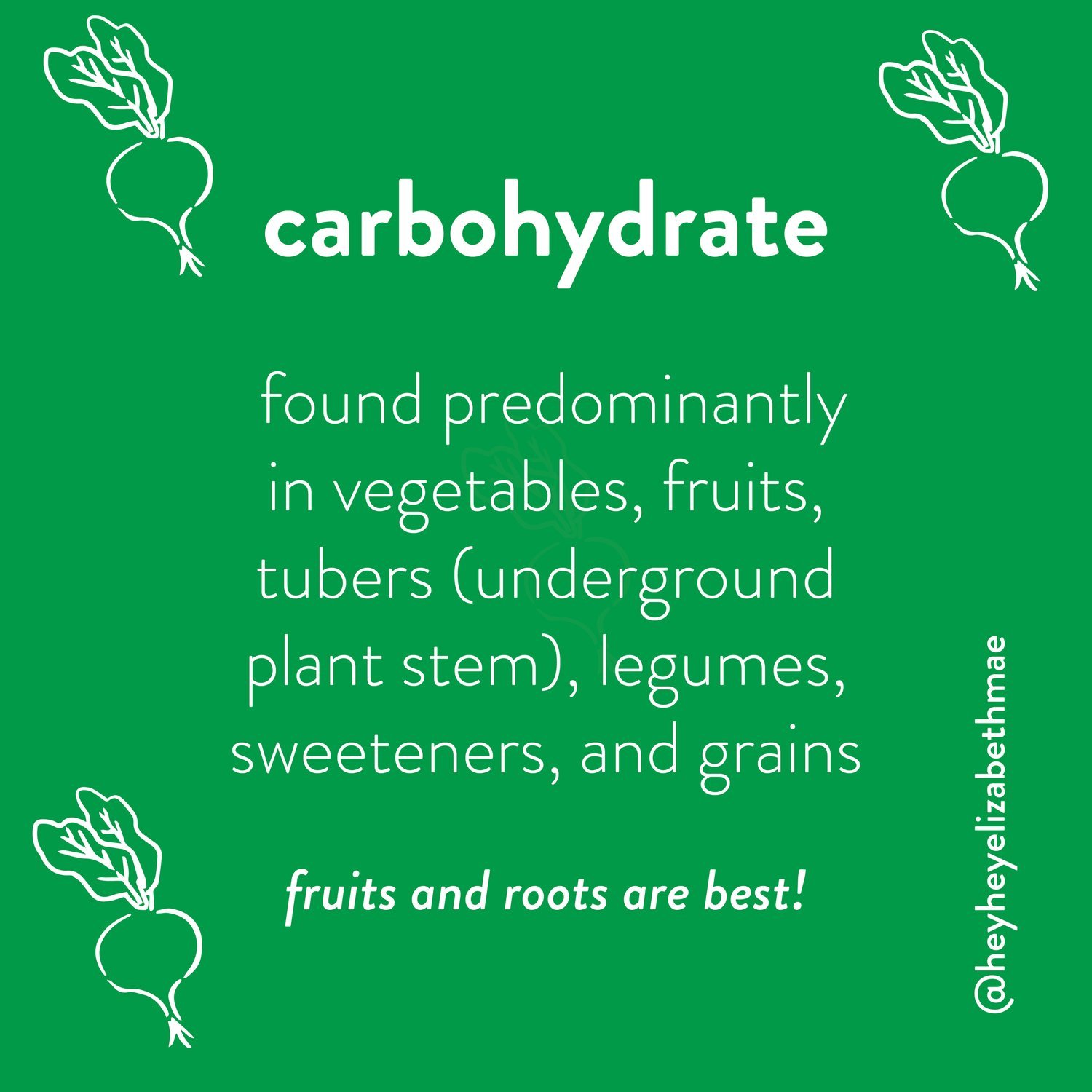Nutrition 101: Macro and Micronutrients
Let’s say you just started care or you’re dipping your toes in nutrition learning for the first time. There can be a helluva lot of jargon that can go over our heads. For SO LONG, I had no idea what a macro was when friends would mention them. I mean keeping up with the food lingo can seem like a full time job within itself!
So sit tight, we’re going to deep dive into this realm so you aren’t scratching your head every time we start talking food. You’re gonna be a pro before you know it! This series will be a guide and the perfect reference to keep coming back to when you need it in a pinch!
Macronutrients
Macronutrient: The 3 macronutrients are: carbohydrates, proteins, and fats. These have many important roles within the body to help fuel us! This is where the term “macros” or “count your macros” comes from. We look at these three numbers as a basic nutrient puzzle for each body. Some do better with high protein, while others need higher fat and still others need various levels of carbohydrates to feel their best or support other health issues.
Carbohydrate: These are found predominantly in vegetables, fruits, tubers (underground plant stem), legumes, sweeteners, and grains. They provide fuel for our brain and muscles. Fiber from carbs can fuel our microbiome and help proper elimination of waste (bulk up those stools), making carbs not all bad as the ole Atkins diet of the early 2000’s led us to believe. The best carb options are always roots and fruits!
Fat: Fats help absorb fat soluble vitamins like vitamins A, D, E, and K. Fat also helps improve the taste of our food and increases satiety (fullness). Fats provide high caloric energy, help build our cell membranes and act as a protective lining for our organs in the body! Our hormones are also derived from healthy fats - they’re the first move for fixing hormone balance via food. Let’s stick with the healthy fats like avocados, pastured animal fats, coconut oil, and olive oils. Canola, vegetable and soy oils are toxic to our bodies. Animal fats from inferior animals can be toxic as well - mammals store toxins in the fat tissue, making a pastured and/or organic animal raised with the least amount of toxicity very important when buying animal fats.
Protein: Proteins are great building blocks for tissues, organs, nerves, muscles, antibodies, enzymes, and so much more! They’re the “glue” of the body and they support our mental health in big ways, too. Proteins also help fight infection! When you are able, protein sourcing and quality can make a big difference, however we go off the good, better, best system over here! Purchase what you can afford and choose better when you can. What to look for when purchasing high quality proteins: wild caught small fish, grass-fed and/or pasture raised meats, pasture raised poultry and eggs. Eggs are an excellent, affordable place to choose higher quality as are those ground meats!
Micronutrients
Micronutrients: Our bodies need these to survive and the kicker is, we don’t make most of them within our own bodies: we gain them from what we eat. Micronutrients consist of two categories: vitamins and minerals.
Vitamins: We need to get most of our vitamins by eating plants and animals that make their own vitamins. Vitamins act as helpers in our metabolic process, supporting tissue growth, digestion, elimination processes, and immune function. Some best sources of vitamins from food include, local, seasonal, organic fruits and vegetables, nuts, seeds, whole raw unrefined and cultured foods, pasture-raised meat, poultry, and eggs. Examples of vitamins are Vitamin C, A, D, K, B6, B12…etc.
Minerals: Minerals are not produced within our body and it’s important we take them in from our food sources and the beverages we consume. Minerals act as helpers for enzyme reactions, balancing the pH within our blood, transferring nutrients across the cellular membranes, contracting and relaxing our muscles as well as regulating our tissue and hair growth. The best minerals we can find will be a diet abundant in plants. Unrefined salt is another key supplier of minerals.
Though these might be the basics of nutrition, they can also be a little complex. They hold important functions within our hands and that’s why it is super important we provide our bodies with these types of healthy foods! We will continue this series next week with part 2.
Digging this education? Get more of this in my 1:1 programs - schedule a clarity call today to see what the best fit for building your health may be!








